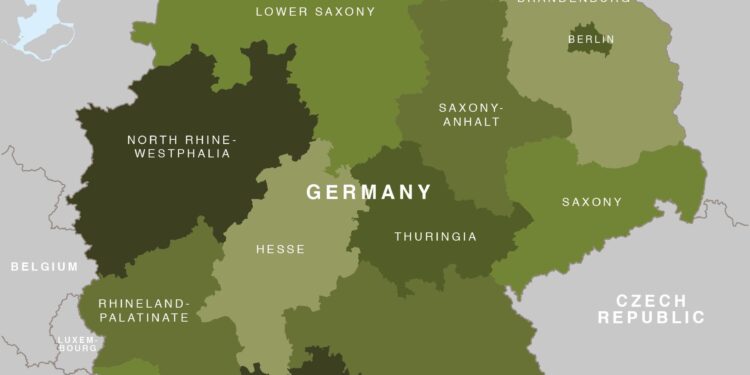Germany has signaled that it does not intend to recognize a Palestinian state in the short term, according to recent reports by Reuters. The statement underscores Berlin’s cautious approach amid ongoing tensions in the Middle East and reflects its commitment to a negotiated two-state solution. This position aligns with Germany’s longstanding foreign policy stance, emphasizing dialogue and diplomacy over unilateral moves in the Israeli-Palestinian conflict.
Germany Reaffirms Stance Amid Ongoing Middle East Diplomatic Challenges
Germany maintains a cautious approach to recognizing a Palestinian state amid escalating tensions and diplomatic difficulties in the Middle East. Despite growing international calls, German officials emphasize the importance of a negotiated peace process and have reiterated that unilateral recognition is unlikely in the near term. Berlin’s position aligns with its commitment to constructive dialogue, supporting a two-state solution based on direct negotiations between Israel and the Palestinians.
Key factors influencing Germany’s stance include:
- Concerns over regional stability and security implications
- Alignment with European Union foreign policy frameworks
- Commitment to facilitating diplomatic talks rather than unilateral moves
- Pressure from both Israeli and Palestinian leadership
| Aspect | Germany’s Diplomatic Approach |
|---|---|
| Recognition | No short-term plans |
| Mediation | Active support of peace negotiations |
| EU Alignment | Consistent with common EU strategy |
| Security Focus | Priority on regional stability |
Implications for EU Foreign Policy and Regional Stability
Germany’s cautious stance on recognizing a Palestinian state underscores the balancing act within EU foreign policy, where diplomatic cohesion remains paramount. Berlin’s decision reflects wider concerns among EU members about maintaining stability in the Middle East while preserving strong ties with Israel and the United States. This approach may lead to a more unified yet restrained EU position, emphasizing dialogue and negotiation over unilateral recognition efforts.
However, this posture could have nuanced effects on regional dynamics. On one hand, it signals to Israel and regional actors a continued European preference for coordinated diplomacy. On the other hand, it risks alienating Palestinian leadership and supporters within Europe who seek more immediate recognition. The EU’s strategy will likely hinge on promoting these key priorities:
- Enhanced diplomatic engagement to revive peace talks
- Support for humanitarian aid and economic development in Palestinian territories
- Maintaining transatlantic unity on Middle East policy
| Aspect | Potential EU Impact | Regional Outcome |
|---|---|---|
| Political Unity | Stronger consensus, less fragmentation | Increased diplomatic leverage |
| Palestinian Relations | Frustration over delay in recognition | Possible rise in grassroots tensions |
| Ties with Israel & US | Positive reinforcement of alliances | Stability in security cooperation |
Experts Recommend Continued Dialogue and Enhanced Mediation Efforts
Amidst the current geopolitical landscape, specialists emphasize the significance of sustained communication channels between the conflicting parties. They argue that only through persistent, open-ended dialogue can mutual understanding be fostered, potentially paving the way for future compromises. The balance between national interests and humanitarian concerns remains delicate, underscoring the need for patient diplomacy rather than abrupt recognition moves.
Key mediation strategies endorsed by experts include:
- Neutral facilitation by international organizations
- Incremental confidence-building measures on the ground
- Inclusive talks that engage diverse stakeholders
- Leveraging economic and cultural cooperation as peace incentives
| Mediation Aspect | Potential Impact |
|---|---|
| Third-Party Neutrality | Enhances trust between parties |
| Confidence-Building | Reduces tensions on the ground |
| Stakeholder Inclusion | Ensures broader acceptance of outcomes |
| Economic Cooperation | Creates mutual dependencies |
In Retrospect
As Germany maintains its position against recognizing a Palestinian state in the short term, the decision underscores the complexities of Middle Eastern diplomacy and the cautious approach many European nations continue to adopt. Observers will be watching closely to see how this stance influences broader international efforts toward peace and the evolving dynamics within the region.
















